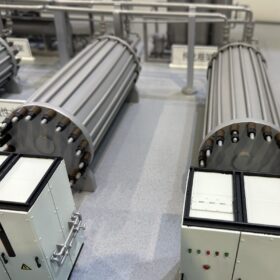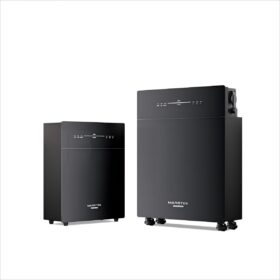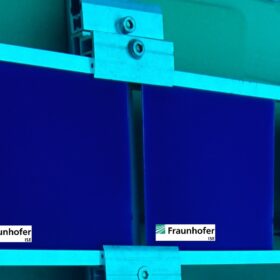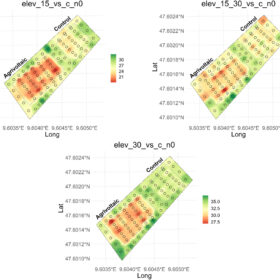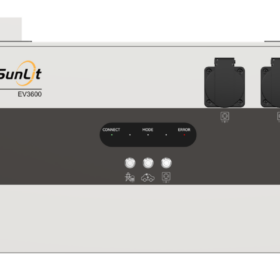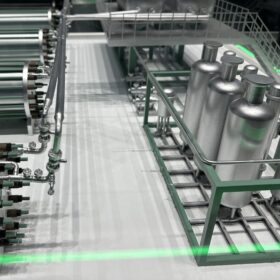The Hydrogen Stream: BMW, Exolum bet on H2 logistics
BMW Group says it will switch its Regensburg plant logistics to hydrogen by 2026, replacing electric vehicles with hydrogen-powered forklifts and tugger trains, while Exolum has launched a new business line to offer integrated logistics solutions across the hydrogen value chain
Wavelabs claims 0.9% uncertainty level for solar module simulator
Germany-based Wavelabs announced that its LED solar simulator Sinus-3000 Advanced has demonstrated a level of uncertainty of 0.9% for silicon solar module power measurement.
Mercedes-Benz testing new solar paint
Mercedes-Benz said it is now evaluating a 20%-efficient, non-silicon photovoltaic coating that is significantly cheaper than conventional solar modules.
Marstek debuts AC coupled residential batteries
The Chinese manufacturer said its new products have a capacity of up to 5.1 kWh and are scalable up to 20.48 kWh. The systems feature a depth of discharge of 90% and can purportedly operate for more than 6,000 cycles.
Fraunhofer ISE warns of risk from higher than expected UV-induced degradation in TOPCon, PERC, HJT cells
The researchers of the German institute explained that UV-induced degradation may cause larger than expected efficiency and voltage losses in all dominant cell technologies, including TOPCon devices. The scientists expect that silicon nitride layers could be used to enhance TOPCon UV stability compared to PECVD layers typically utilized in PERC and heterojunction cells.
Overhead agrivoltaics could disrupt global navigation satellite systems used for precision agriculture
Fraunhofer ISE researchers have investigated whether PV panels installed above orchards can affect the reception of global navigation satellite system (GNSS) signals and, in turn, affect the precision of advanced autonomous tools. They found a disruption and suggested some alternatives.
Sunlit unveils bidirectional inverter for PV carports, balcony solar
Sunlit has launched the EV3600 bidirectional inverter for PV carports and balcony solar applications, allowing users with dynamic electricity tariffs to charge storage units when prices are low. The German company says the inverter supports extensions for vehicle-to-home and vehicle-to-grid functionality.
Germany set to cross 100 GW milestone
Germany might exceed 100 GW of cumulative solar capacity in 2024, as new projections from Bundesverband der deutschen Energie- und Wasserwirtschaft (BDEW) estimate 17.5 GW in new PV installations.
Germany commits €24 billion to build national hydrogen network
KfW Development Bank has offered €24 billion ($25.2 billion) grant to bridge the gap between network operators’ high investment costs and the initially low revenues from network charges.
German researchers investigate molecular solar thermal energy storage
A four-year research project by several German universities is exploring the release of molecules involved in molecular solar thermal (MOST) energy storage. They plan to modify the molecules to achieve the best possible properties for the storage technology.
